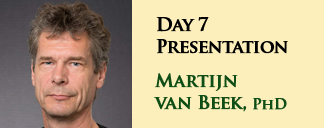Martijn van Beek, PhD, Associate Professor, Interacting Minds Centre & Department of Anthropology, Aarhus University.
The scientific study of contemplative practices, their mechanisms and effects has generated significant insights into aspects of the human mind and behaviour. Concerns persist regarding what Thomas Merton called the “simple pharmacology of contemplation” and the prominence of the anthropological figure of the cerebral subject in contemplative science. To better understand what contemplative traditions have to offer and how their transformative potential may be realized today, research is needed that provides a more comprehensive account of the varieties of contemplative life, historically as well as contemporarily, in different settings around the world. Taking an anthropological perspective, this presentation suggests elements for the development of a more comprehensive and differentiated view of contemplative life. Broadening our attention from meditation techniques to contemplative lives, including intentional communities, relationships, institutions, experience, meaning, and practices, demands long-term research collaborations between sciences and humanities, between scholars and practitioners. It entails first, second and third person perspectives. This kind of research is likely to be slow, difficult, at times frustrating, but ultimately, hopefully, rewarding in helping to provide a more adequate understanding of contemplative life, practices, and their effects. It may also foster greater humility about what we claim science has shown about the workings and effects of contemplative practices.
360 Video Login required
